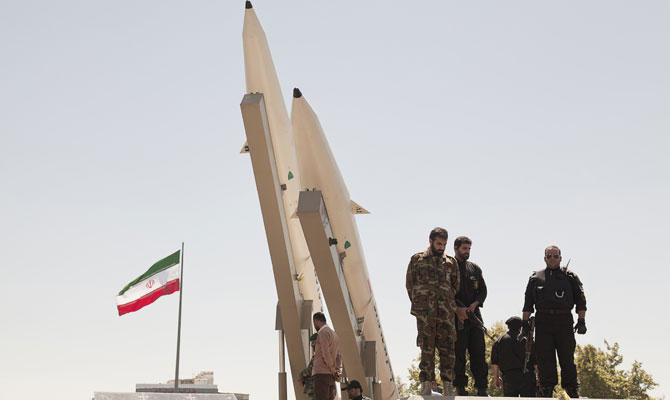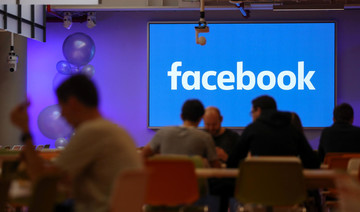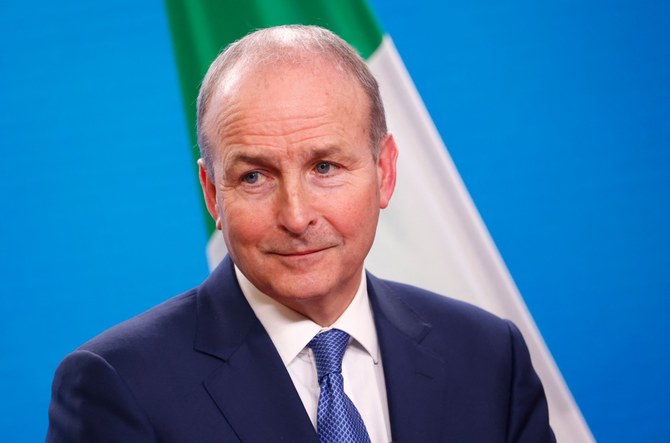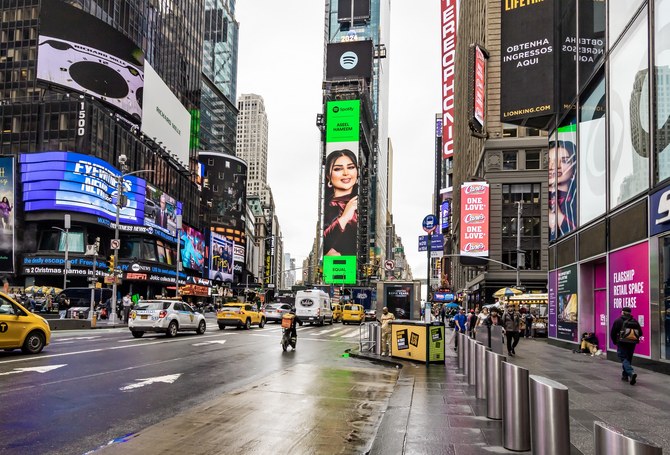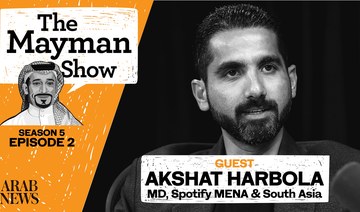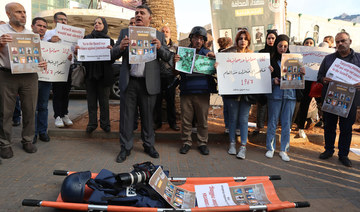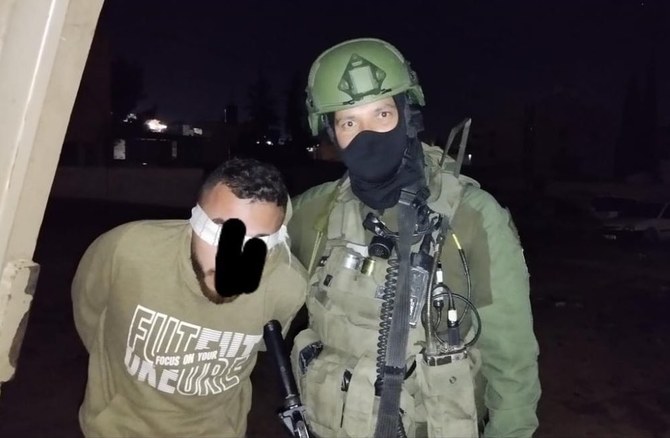DUBAI: The battle against fake news — a concept more readily associated with the US — has taken a Middle Eastern flavor after social media giants Facebook and Twitter removed hundreds of accounts tied to an alleged Iranian propaganda operation.
Experts claim that the ultimate aim of the social media move was to promote political narratives in line with Iranian interests — including anti-Saudi, anti-Israeli, and pro-Palestinian themes.
The response from Facebook has been swift, with the company revealing it has taken down 652 pages, accounts and groups identified as being part of coordinated disinformation campaigns that originated in Iran and targeted countries around the world, including the US, UK, and nations in Latin America and the Middle East. It also found a number of new pages connected to Russia, with some purporting to be from a group called “Liberty Front Press.”
This week has also seen Twitter pinpoint many “inauthentic” accounts originating in Iran, and taking action to remove them. It said: “Working with our industry peers, we have suspended 284 accounts from Twitter for engaging in coordinated manipulation. Based on our existing analysis, it appears many of these accounts originated from Iran.”
Writing in Arab News today, Dr. Majid Rafizadeh, an Iranian-American scholar, author and US foreign policy specialist, said that through deliberate generating and disseminating of fabricated headlines and videos, propagating fake news and inaccurate pictures, Tehran is trying to shape the political discourse of other countries and intentionally misleading people to advance the ruling mullah’s revolutionary, ideological and geopolitical interests.
He said that he has long suggested that “the giant social media outlets ought to look into the Iranian regime’s major role in disinformation and dissemination of fake news.”
“The most recent revelations have brought to light that it is not only Russia engaged in such activities, but also Tehran following in the same footsteps as their close ally,” he said.
Facebook said that the coordinated campaigns originating in Iran included 254 Facebook pages and 116 Instagram accounts that amassed more than a million followers across the two services. One part of the Liberty Front Press network claimed to be an independent Iranian media organization but was in fact linked to Press TV, a news network affiliated with Iranian state media, Facebook said.
A statement from Facebook’s CEO Mark Zuckerberg, released to Arab News, said: “We removed more than 650 pages, groups and accounts for coordinated inauthentic behavior on Facebook and Instagram. These were networks of accounts that were misleading people about who they were and what they were doing. We ban this kind of behavior because authenticity matters. People need to be able to trust the connections they make on Facebook.”
Facebook said that the Russian accounts, groups and pages it took down were not related to the ones originating in Iran, and that they did not appear to have targeted the US.
Fighting “bad actors” is an ongoing challenge because the people responsible are determined and well funded, he said, but the social media company was working with law enforcement, security experts and other companies as part of their investigation. The latest alleged Iranian activity was exposed by cybersecurity firm FireEye.
Lee Foster, an information operations analyst for the cyber company, told Arab News: “This influence operation linked to Iran aims to promote political narratives in line with Iranian interests, including anti-Saudi, anti-Israeli, and pro-Palestinian themes.
“The activity we have uncovered is significant and demonstrates that actors beyond Russia continue to engage in online, social media-driven influence operations as a means of shaping political discourse.
“It also illustrates how the threat posed by such influence operations continues to evolve, and how similar influence tactics can be deployed irrespective of the particular political or ideological goals being pursued.”
This assessment is based on a combination of indicators, including site registration data and the linking of social media accounts to Iranian phone numbers, as well as the promotion of content consistent with Iranian political interests. For example, registrant emails for the sites “Liberty Front Press” and “Instituto Manquehue” are associated with advertisements for website designers in Tehran and with the Iran-based site gahvare.com, respectively. FireEye also observed inauthentic social media personas, masquerading as American liberals supportive of US Senator Bernie Sanders, heavily promoting Quds Day, a holiday established by Iran in 1979 to express support for Palestinians and opposition to Israel.
Harris Breslow, an associate professor with the Department of Mass Communication at the UAE’s American University of Sharjah, said that he wasn’t “at all surprised” about the latest development.
“Facebook has 2 billion accounts, I think it would be safe to say that all state actors are on and using Facebook,” he said. “Today, it is Iran, in the last it has been Russia, next — who knows?“
“It has been widely circulated that fake news articles spread on Facebook swayed the results of the 2016 presidential election in the US, and Breslow said that he thinks “this is generally widely accepted.”
“It doesn’t come to any surprise at all to me that now Iran has been found out. But I would say every state actor is utilizing Facebook. Why not? It is massive. So am I surprised? No. Is it going to continue? Most certainly. Are they are only actors? Not at all.”
There are two benefits for state actors to use social media, Breslow said, the first being the sheer quantity of the posts that are uploaded to Facebook every day.
“Billions of posts are made daily; it is impossible to go through them all,” he said. ‘“The sheer volume of information prevents them from examining all the information — hence they have to look at patterns of dissemination and that is probably the problem, you can’t see everything coming down the pipe because the pipe is far too wide.”
In a technological age, where the world is online, social media provides the most easily available port of call for state actors wanting to spread false information, unfiltered, to a global audience, he said.
“If you want to propaganda another states’ citizens, then the easiest and most direct way is social media,” he said. “One advantage that social media has over traditional or broadcast media is you can target individuals fairly directly — you circumvent the distributing networks — the propaganda doesn’t move though an actual point of access. On broadcasting channels, for example, you have to pass several layers of scrutiny, if not surveillance. This is not the case of social media and it becomes extremely difficulty to examine or surveil every bit of information that has been posted.”
In an effort to prevent a repeat of the widespread disinformation ahead of the US midterm elections in November, social media firms including Facebook and Twitter have publicly announced that they are strengthening their platforms to guard against political interference.
Zuckerberg said: “We’ve been investing heavily to improve safety, security and privacy — and to defend against these coordinated and inauthentic campaigns. This has been a lot of hard work, and while still early, we’re starting to see it pay off and we’re identifying more of it before the elections.”
Dr. Johannes Ullrich, Dean of Research at SANS Institute, said that there “is little that can be done proactively to prevent nation-state actors from attempting influence operations.”
“But the earlier these operations are discovered, the easier it is to limit their impact,” he said. “Social networks like Facebook and Twitter are investing heavily in systems that recognize suspicious accounts and flag them for further review.
“For targets of influence operations, like political parties and other organizations, it is important to be prepared and to have a game plan to quickly respond. Part of this consists of fostering collaborations with social networks that are commonly used to propagate these messages.”
Tehran recently shut down the messaging app Telegram because it was popular and used by many Iranians to inform the world about the nationwide protests against the regime, while Twitter and Facebook have remained banned in Iran since millions of protesters took to the streets of Iranian cities in 2009 — organized thanks to the way that they used social media to organize and disseminate information.
Breslow said that with a technologically-savvy generation, state actors will “always find a way” to circumvent specific anti-filtering software or uses proxies and VPNs to bypass the restrictions.


